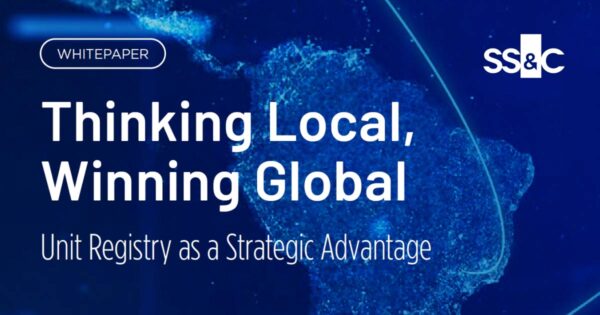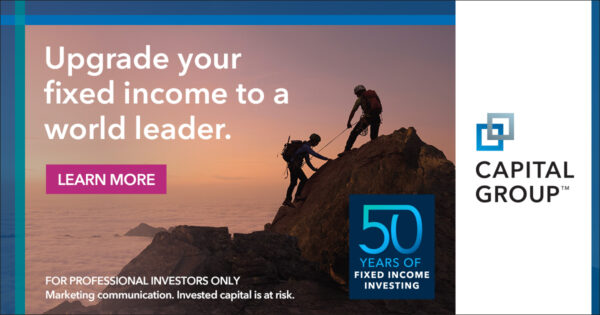Taking the search for alpha opportunities global

Optimism about generative artificial intelligence (AI) and earnings resilience have driven US stocks to record highs. While the US market remains an important source of alpha opportunities, there is an increasing appreciation among investors for the need to diversify return streams by seeking opportunities elsewhere.
While investors should not chase past returns, it is notable that on average, over half of the top 50 performing companies in developed markets are listed abroad, and among the top performers, international stocks have outnumbered the US in 12 out of the last 22 years1.
Aside from performance, there are also other merits to investing in international equities.
- First, diversification2. Seeking quality opportunities with a global lens can help buffer against market or region-specific risks, lower correlations across individual holdings and potentially reduce the volatility of the overall portfolio. Going global also helps expand the opportunity set, widening the range of companies that active managers can select, whether across regions, sectors or currencies.
- Second, not all structural themes can be accessed through one geographical market alone. While certain AI-related companies in the US have become household names, there are plenty of lesser known companies in Taiwan, South Korea and Europe that play niche, yet significant roles, in key nodes of the tech supply chain and are beneficiaries of the growing demand for AI-related products.
- Third, earnings across many regional markets outside of the US are expected to accelerate this year from a dismal 20233. And while US equity market valuations look somewhat extended versus its past 15-year history, other regional markets appear more fairly valued, with price-to-earnings multiples hovering close to their long-term averages3.
Selectivity and active management will matter amid a more challenging macro environment, marked by slowing growth, higher cost of capital, and elevated geopolitical risks. A bottom-up, flexible and global approach to stock investing can help allocate capital to high conviction ideas wherever they may be, without bias to any particular region or investment style, be it value or growth.
To that end, the JPMorgan Global Select Equity Strategy has achieved competitive and consistent performance in different market environments by harnessing a disciplined, bottom-up, research-driven approach that has been in place for over three decades4.
Differentiated insights driven by a well-resourced global equities research platform has helped the strategy unearth high quality opportunities with relatively attractive valuations regardless which investing style is in vogue. Over the years, this tried-and-tested approach has helped the portfolio achieve consistent performance in both growth-led and value-led market environments4.
This long established strategy was recently launched as an active ETF and as a mutual fund in the Australian market, and both are Highly Recommended by Lonsec5.
- JPMorgan Global Select Equity Active ETF (JGLO)
- JPMorgan Global Select Equity Fund (APIR: PER9997AU)
- Source: FactSet, MSCI, J.P. Morgan Asset Management. Data as of 21.02.2024.
- Diversification does not guarantee investment return and does not eliminate the risk of loss.
- Source: FactSet, MSCI, Standard & Poor’s, J.P. Morgan Asset Management. Data as of 06.05.2024.
- Past performance is not a guide to current and future performance.
- The ratings issued 05/2024 for JPMorgan Global Select Equity Active ETF and JPMorgan Global Select Equity Fund are published by Lonsec Research Pty Ltd ABN 11 151 658 561 AFSL 421 445 (Lonsec). Ratings are general advice only, and have been prepared without taking account of your objectives, financial situation or needs. Consider your personal circumstances, read the product disclosure statement and seek independent financial advice before investing. The rating is not a recommendation to purchase, sell or hold any product. Past performance information is not indicative of future performance. Ratings are subject to change without notice and Lonsec assumes no obligation to update. Lonsec uses objective criteria and receives a fee from the Fund Manager. Visit lonsec.com.au for ratings information and to access the full report. © 2024 Lonsec. All rights reserved.
Provided for information only to illustrate macro trends and JPMAM’s overall income investing capabilities. The information is based on market conditions as of date of publication, should not be construed as offer, research, investment recommendation. ETFs have fees that reduce their performance, indexes do not. The market price is generally determined using the official closing price of the Fund. Each individual security is calculated as a percentage of the net assets. Returns, income or dividends are not guaranteed. The manager seeks to achieve its stated objectives, there is no guarantee they will be met. Please refer to offering documents for details on distribution policy. Forecasts and estimates may or may not come to pass.
JPMorgan Asset Management (Australia) Limited ABN 55 143 832 080, AFSL No. 376919
All investments contain risk and may lose value. The information provided on this article is general in nature and has been prepared, without taking into account your objectives, financial situation or needs and does not constitute personal financial advice. Before making any decision, it is important for investors to consider the appropriateness of the information and seek appropriate legal, tax, and other professional advice. For more detailed information relating to the risks of the Fund, the type of customer (target market) it has been designed for and any distribution conditions please refer to the relevant Product Disclosure Statement and Target Market Determination which have been issued by Perpetual Trust Services Limited, ABN 48 000 142 049, AFSL 236648, as the responsible entity of the fund available on https://am.jpmorgan.com/au.












100% just ask this financial planner they banned for alleged churning based on incomplete & manipulated information. I guess this…
non-disclosed to members in any way they would understand, as it will be paid via an investment reserve set aside…
ASIC hardly need to stonewall questioning of them, it’s benign stuff. Anyone who’s watched Bragg in action and especially those…
Who pays the fine? The members?
And yet they publish bannings and such for ‘crimes’ of far less…for smaller fry advisers…